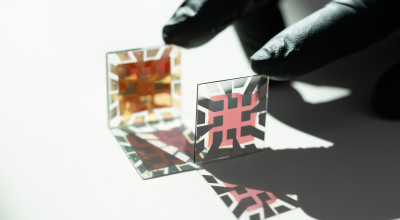At a recent media event, the Georgia Tech Research Institute (GTRI) and Norfolk Southern unveiled a new digital train inspection portal near Jackson, Georgia, marking the culmination of a three-year collaboration.
The portal is the first of its kind in the state of Georgia that uses advanced machine vision and artificial intelligence to examine moving trains to identify mechanical issues that may exist. It represents a significant step forward in railway safety and efficiency.
In October, the company opened two train portals on adjacent tracks in Leetonia, Ohio, with plans to expand to as many as a dozen by the end of 2024.
“At GTRI, we do a lot of work for national security and for the state of Georgia,” GTRI Chief of Staff Keith McBride said at the April 12 event. “We have this thing called a virtuous cycle, where one application for the state of Georgia might apply to national security and one in national security might apply to the state of Georgia, and that’s the case here. Norfolk Southern has been a great partner and we’re really excited about seeing what we’ll do next.”
GTRI Chief of Staff Keith McBride speaks with the media about the significance behind GTRI's multi-year collaboration with Norfolk Southern (Photo Credit: Sean McNeil, GTRI).
The digital train inspection portals use machine vision technology equipped with 38 high-resolution cameras strategically placed to capture comprehensive images of key components on all sides of passing train cars.
These images are generated and analyzed by Norfolk Southern-developed AI algorithms within minutes of a train’s passage, enabling rapid identification and reporting of any issues detected. Powerful stadium-grade lighting enables the cameras to take approximately a thousand photographs of each moving rail car, ensuring thorough inspection and analysis.
“We really get a 360-degree view of the equipment and thousands of images that give us a snapshot of everything on that car as it goes through,” Norfolk Southern Vice President of Safety John Fleps said at the media event.
The project began in 2021 and involved about a dozen researchers across four GTRI laboratories. GTRI researchers have been working on machine vision technology like this for other industrial applications, ranging from products developed in the food processing industry to the Department of Transportation and U.S. military.
“This is the area where we collaborated with our partners at GTRI, the true imaging experts in the field,” said Mabby Amouie, Norfolk Southern’s chief data scientist, at the event. “The results have been phenomenal. They’ve done similar imaging projects for the Department of Defense and we’re really happy with the outcome and the crispness of the images that we’re getting.”
Writer: Anna Akins
Photos: Sean McNeil
GTRI Communications
Georgia Tech Research Institute
Atlanta, Georgia
The Georgia Tech Research Institute (GTRI) is the nonprofit, applied research division of the Georgia Institute of Technology (Georgia Tech). Founded in 1934 as the Engineering Experiment Station, GTRI has grown to more than 2,900 employees, supporting eight laboratories in over 20 locations around the country and performing more than $940 million of problem-solving research annually for government and industry. GTRI's renowned researchers combine science, engineering, economics, policy, and technical expertise to solve complex problems for the U.S. federal government, state, and industry.



